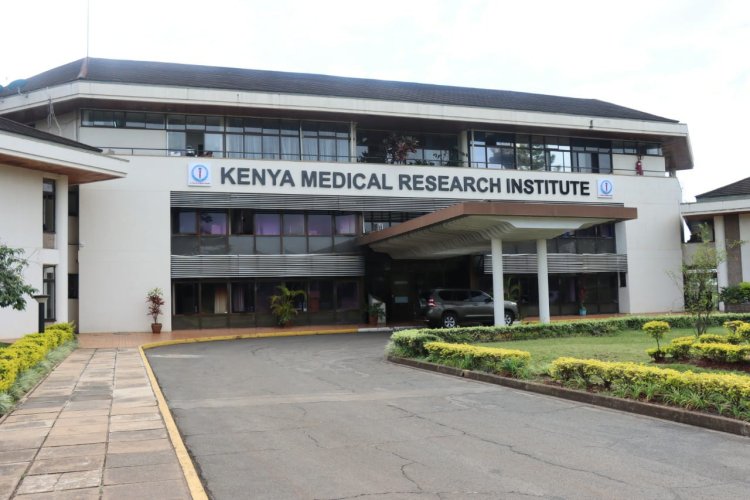Patrick Amoth: Sex Workers Were Chosen For Super Gonorrhoea Study
Amoth confirmed the report of the disease after the Kenya Medical Research Institute (KEMRI) conducted a study...

Health Director-General Patrick Amoth on Tuesday, January 17 uncovered more details regarding the 'super gonorrhoea' disease after reports of it shook the whole of Nairobi last week.
Speaking during a Citizen TV interview, Amoth confirmed the report of the disease after the Kenya Medical Research Institute (KEMRI) conducted a study on commercial sex workers.
He revealed that a new variant of gonorrhoea, termed Neisseria gonorrhoea, was established, which carried unusual properties, and further clarified that the 'super' term was not in reference to its prevalence.

A Kenya Medical Research Institute (KEMRI) building. /FACEBOOK
Amoth allayed fears of a super spread, noting that only one person out of the 400 samples, making up 0.0025 per cent, was found to have hosted the pathogen.
"This report came from a study that was conducted by KEMRI among commercial sex workers and out of the pathogens they looked at was Neisseria gonorrhoeae, the organism that causes gonorrhoea and out of that there were quite a number of pathogens that were resistant to ordinary antibiotics and in one particular individual, out of a sample of 400, was one that was resistant to nearly all the antibiotics we put it through," explained Dr Amoth.
He further clarified that KEMRI conducted the study a while ago and that the government was anticipating a conclusive report on its findings.
"KEMRI is doing a deep dive to be able to inform us further on the spread and span of this particular strain of gonorrhoea and once we have that information we will be able to put in place the appropriate interventions to forestall it. This was from slightly old data but is very pertinent," he added.
Amoth further noted that the cases of the 'super' gonorrhoea were reported in other countries such as Japan, Thailand and the United Kingdom (UK).
He nonetheless called upon Kenyans to take the disease seriously by exhibiting responsible sexual behaviour even as the government was working on finding treatment for the strain. The responsible behaviours include the use of condoms and reducing the number of sexual partners.
According to the World Health Organization (WHO) Super gonorrhoea, also referred to as super-resistant gonorrhoea, is an extensively drug-resistant gonorrhoea with high-level resistance to the current recommended treatment for gonorrhoea (ceftriaxone and azithromycin) including resistance to penicillin, sulphonamides, tetracycline, fluoroquinolones, macrolides.
A report by the Kenya National Bureau of Statistics (KNBS) revealed that the average number of sexual partners of Kenyan men stood at seven in a lifetime compared to two for women.
Nairobi men (9.3) and women (2.6) were ranked fifth and sixth respectively in the average number of sexual partners in their life while men and women in Murang'a (14.1 and 3.3 respectively) had the highest average number of sexual partners in the whole country.


 admin
admin 




